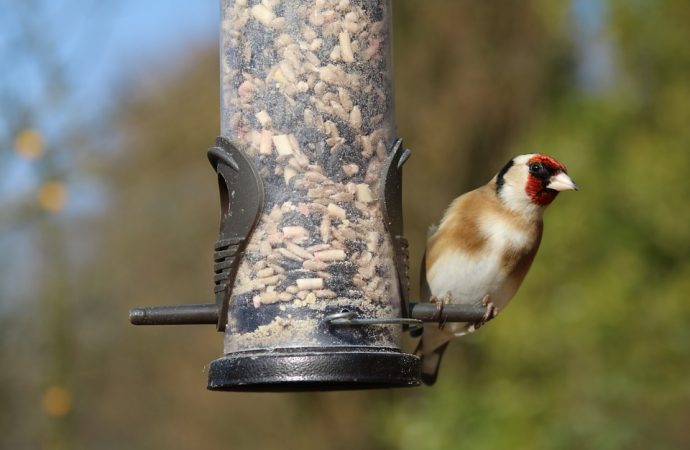‘Street Smart’ finches are generally more intelligent than their rural kin.
Living in the city has its advantages, it seems. That is, if you happen to be a bird.
A recently-published study, led by Jean-Nicolas Audet of McGill University, looked at the problem-solving skills of bullfinches that lived in an urban environment and compared them to those bullfinches that lived in the country.
The study took place in the island of Barbados, an ideal localization for this kind of research since the urban and rural environments are quite distinct from one another.
Cities increase birds’ cognition
The researchers tested the rural and urban bullfinches individually for various intelligence-based traits, such as problem-solving and tactility. The study involved 53 finches acquired from 8 different sites around the island and then allowed to habituate for a couple days inside cages.
Fourteen hours of food deprivation preceded each test. One such test involved setting a dish of food and timing how long it took the finch to eat it; another involved the same set-up and procedure, except for some novel object placed beside the dish. Each finch was tested in the exact same order, in order to prevent any biases. In addition, human presence was kept to an absolute minimum; the researchers observed the birds from behind opaque curtains and the birds could not see outside their cages unless the cage door was opened.
The urban bullfinches out-performed their rural counterparts in virtually all assessed categories. For example, in the problem-solving-heavy tests, the researchers noted an almost double success rate for the urban birds compared to the rural ones; this is quite a difference, indeed.
One possible reason for the urban finches’ superior cognitive abilities is simply that the urban environment in Barbados, and possibly other cities as well, is more unforgiving than the rural one. It forced the finches to adapt to the new setting, as per the Laws of Evolution. When moving to the city, only the smarter birds were able to adapt to the new environment and therefore survive. In other words, “street-smarts.”
Studying other cities’ animals
Other research groups had already suggested that environmental conditions affect birds’ cognitive abilities. Tebbich and Teschke showed that Darwin’s finches from arid regions are faster learners than forest finches, and Kozlovsky demonstrated that mountain chickadees are better problem-solvers than the chickadees from sea level regions. Audet’s was the first study to show that similar cognitive differences can be found in birds from urbanized or rural areas.
The next step would be to study other birds from other cities around the globe to see if similar trends can be found; that is, whether birds that choose to live and breed in the city sire smarter offspring than those that remain in the countryside.
Another interesting path would be to see if any other animal species tend to benefit from the city life.
References:
Urban Birds are smarter than their rural counterparts
Audet, J., Ducatez, S., & Lefebvre, L. (2016). The town bird and the country bird: problem solving and immunocompetence vary with urbanization Behavioral Ecology, 27 (2), 637-644 DOI: 10.1093/beheco/arv201
Tebbich, S., & Teschke, I. (2014). Coping with Uncertainty: Woodpecker Finches (Cactospiza pallida) from an Unpredictable Habitat Are More Flexible than Birds from a Stable Habitat PLoS ONE, 9 (3) DOI: 10.1371/journal.pone.0091718
Kozlovsky, D., Branch, C., & Pravosudov, V. (2015). Elevation-Related Differences in Parental Risk-Taking Behavior are Associated with Cognitive Variation in Mountain Chickadees Ethology, 121 (4), 383-394 DOI: 10.1111/eth.12350





